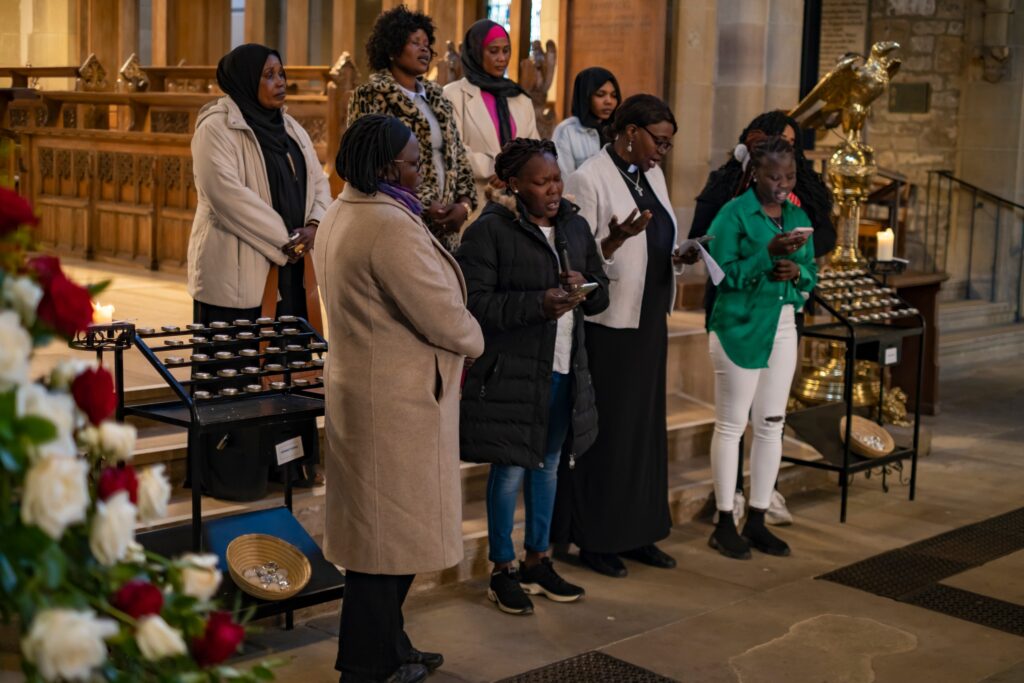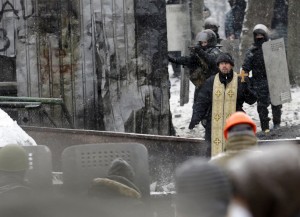This month, I had the privilege of sitting on a panel at the Rosa Park Symposium at the University of Bradford. The theme of the day was “Creating a Reimagined Sense of Inclusion through Arts and Culture,” and our panel explored “Growing Inclusion: Leveraging the Transformative Power of the Creative Sector.” The whole day was an enriching and challenging series of presentations and conversation, filled with optimism, bold visions, and creative energy. Yet, I found myself experiencing an inner conflict.
As I listened, I heard familiar slogans advocating inclusion, framed in language that, though well-meaning, often felt either too idealistic or too reductive to capture the complexities of our fractured world. The rhetoric often felt tired, rehearsed, or, at times, naïve. If inclusion is so straightforward why do we remain so frustratingly stuck? What troubled me more, however, was my own response. While I felt critical of some ideas, I realised I had little to offer as an alternative: a constructive, fresh lens through which to view the challenge of inclusion.
Due to time constraints I was unable, during our panel discussion at the end of the day, to unpack a nascent concept I’ve been developing: inclusive othering. This meant it was not given its opportunity to be discussed and honed as I had hoped it might. Inclusive Othering is a framework born of my own wrestling with difference and unity, inspired by a blend of theological reflection, improvisational practice, and the work of thinkers like St Augustine, Stanley Hauerwas, and Nelson Mandela. But before I explore it here (still relatively unworked), I want to pause and reflect on the impasse in today’s inclusion conversations that became so evident during the symposium.
Conversations about inclusion often stumble over an inherent tension: inclusion implies openness, but in practice, it often involves boundary-drawing. What is included is, by its very nature, defined in opposition to what is excluded. This paradox becomes particularly sharp in progressive spaces, where the desire to create inclusive environments sometimes leads to the exclusion of those who do not align with the values or ideologies of inclusion.
At the heart of this dynamic is the concept of ‘othering’. Othering is the process by which we define and treat certain individuals or groups as fundamentally different from ourselves. It often involves reducing the ‘other’ to a set of characteristics that justify their marginalisation or exclusion. Historically, othering has been a tool of oppression, reinforcing social hierarchies and justifying injustice. However, in contemporary conversations about inclusion, othering takes on a new, more subtle form. Progressive spaces may unintentionally ‘other’ those who resist or critique the dominant narrative of inclusion, labelling them as obstacles rather than participants in the process.
This ironic exclusion mirrors the very dynamics these spaces seek to dismantle. It often reinforces binary distinctions between the “enlightened” and the “ignorant,” the “tolerant” and the “bigoted.” While boundaries can be necessary to protect marginalised groups, they risk creating their own forms of exclusion, perpetuating division rather than healing it.
Philosophically, this tension plays out in debates between universalist and particularist approaches to inclusion. Universalist perspectives emphasise shared human values and the flattening of differences to create common ground (“we are all essentially the same”). Particularist perspectives, by contrast, insist on the importance of honouring specific identities and histories, even if that creates friction (think identity politics). Both approaches have merit, but both also risk perpetuating exclusion in different ways: universalism by erasing difference, particularism by entrenching it.
This impasse creates a troubling stalemate. How can we move beyond it? How can we embrace the richness of difference without turning it into a weapon? How can we create spaces where inclusion doesn’t come at the cost of exclusion?

Inclusive othering seeks to chart a path through this tension. Rather than resolving the paradox of inclusion by choosing either the universalist or particularist perspective, it hopes to reframe the conversation entirely. It begins, like the particularists’ approach, with an acknowledgment of difference. Instead of treating difference as fixed or ontological, however, it adopts an improvisational perspective: differences are seen as temporary and dynamic, inviting exploration of how shared spaces can be constructed. This approach resonates with Vincent Donovan’s reflections on mission:
…the unpredictable process of evangelization, [is] a process leading to that new place where none of us has ever been before. When the gospel reaches a people where they are, their response to that gospel is the church in a new place, and the song they will sing is that new, unsung song, that unwritten melody that haunts all of us. What we have to be involved in is not the revival of the church or the reform of the church. It has to be nothing less than what Paul and the Fathers of the Council of Jerusalem were involved in for their time – the refounding of the Catholic church for our age.
(Vincent Donovan, Christianity Rediscovered (London: SCM Press, 2009) p.xix)
Similarly, Nelson Mandela exemplified this ethos in his leadership. He recognised the deep divisions within South Africa but refused to let these define its future. Instead, he practiced a form of inclusive othering by inviting former adversaries into a shared project of reconciliation, rooted in mutual respect and the belief that difference could be a creative force rather than a barrier.
Inspired by St Augustine’s understanding of our communal identity, inclusive othering invites us to see the ‘other’ not as a threat but as a partner. For Augustine, we are most ourselves not in isolation but in community. In this view, unity is not the absence of difference nor is it the attempted version of tolerance; ‘good disagreement’. Inclusive othering is a process of mutual engagement, where difference is not erased but embraced as essential to the work of building a shared life. It resists the urge to flatten differences into sameness or to let them become walls that divide. Instead, it invites us to hold the tension between unity and diversity, seeing the other not as a threat but as a learning partner.

Improvisation provides the practical basis for engaging in difference and good improvisation begins with the discipline of listening, and commitment to risk-taking and results in co-creation.
Firstly then, to listen deeply is to be obedient.
The very word obedience has a treasure hidden in its history. If you unpack it, ob audiere, to listen intently is the language of love. When you really love, you listen intently to know what the one you love wants to happen.
(Columba Cary-Elwes, Work and Prayer: The Rule of St. Benedict for Lay People (London: Burn & Oates, 1992) p.182)
Improvisation requires that you ‘love’ your fellow performer. This is often an act of will and an intentional posture you must take on. What I mean by ‘love’, in this case, is to decide to trust the other and to listen intently to not just what they say but how they say it and what they don’t say. Before I make any offer on stage I watch, listen; obey my scene partner/s. This form of improvisational listening involves humility and an openness and expectation to being changed by what we hear. I could bring in the ethical ideas of Stanley Hauerwas here but it will be enough to offer this insight for reflection.
Being disciplined in obedience is perhaps the key virtue of a good and faithful performer. This is a skill that can be acquired only in communities that foster an “ecology of hope,” what Nicholas Lash calls “schools of stillness, of attentiveness; of courtesy, respect and reverence; academies of contemplativity.”
(Stanley Hauerwas, Performing the Faith: Bonhoeffer and the Practice of Nonviolence (London: SPCK, 2004) p.100)
Once an improviser has begun to learn and inhabit this posture of love, humility and obedience, they must then layer on the commitment to risk taking. Once they’ve listened, they must offer something back; their perspective, their story, a gift. This requires vulnerability and trust only built by the first step. This is where we return to the notion of love. Love is not love if it doesn’t risk loss, abandonment, dare I say, abuse. the most meaningful and transformative relationships are the ones that ask you to risk being hurt. Improvisation, like all relationships, assumes a willingness to risk relational failure, trusting that grace can emerge even in the messiness of human interaction.
Finally, once the pattern of gift exchange is established within improvisation, an improviser then must resist the desire to “win” the interaction but to create something new; a shared narrative, a collaborative work, or, in the case of inclusive othering: a reimagined community.
Inclusive othering is not without its tensions. The balance between unity and difference is fraught. Too often, calls for unity silence marginalised voices in the name of harmony, while particularism risks entrenching division. Unity, in this new framework, is not about erasing difference but embracing it as a creative force. It sees relationships as dynamic, unfolding, and co-creative; resisting static notions of inclusion that demand conformity, instead inviting us to engage in a process of mutual transformation.
Moreover, the improvisational nature of inclusive othering may feel unsettling to those who crave certainty. It demands a willingness to step into the unknown, to embrace relational tension, and to trust that grace can emerge even in failure. Yet, these challenges are also its strengths. Inclusive othering will only thrive on humility, curiosity, and adaptability.
Imagine a community workshop, for example, where participants from diverse backgrounds share their stories through improvisational exercises, stepping into each other’s shoes and perspectives. Imagine a policymaking process that centres marginalised voices through iterative feedback loops. Imagine a church service where liturgy becomes a co-creation, weaving together the cultural symbols of all participants. These are some potential practical experiments in inclusive othering. They embody the belief that difference is not a problem to solve but a catalyst for building something new and truly shared.


 …Ok. Since I wrote that reflection there has been a growing sense of some footing being lost amongst us. We have felt, at different moments, that we have lost our way or the passion has waned. This has been due to various small events in the life of our community which have combined to create not a destruction or a despair but a niggle, a question to arise: what are we doing?
…Ok. Since I wrote that reflection there has been a growing sense of some footing being lost amongst us. We have felt, at different moments, that we have lost our way or the passion has waned. This has been due to various small events in the life of our community which have combined to create not a destruction or a despair but a niggle, a question to arise: what are we doing? A wise brother amongst us wrote a deeply honest and profound response to my call for a discussion. He named the beauty of Burning Fences as ‘a clearing’. He writes,
A wise brother amongst us wrote a deeply honest and profound response to my call for a discussion. He named the beauty of Burning Fences as ‘a clearing’. He writes, This is our quest: to inhabit, together, No-Man’s Land. To share the space making no claim on it for ourselves or the parties, agendas and personal empires which we are tempted to enforce. We desire, however, to build our home there for to be at peace one must feel a sense of belonging. To what are we committing and how can that be spoken in this between place?
This is our quest: to inhabit, together, No-Man’s Land. To share the space making no claim on it for ourselves or the parties, agendas and personal empires which we are tempted to enforce. We desire, however, to build our home there for to be at peace one must feel a sense of belonging. To what are we committing and how can that be spoken in this between place?